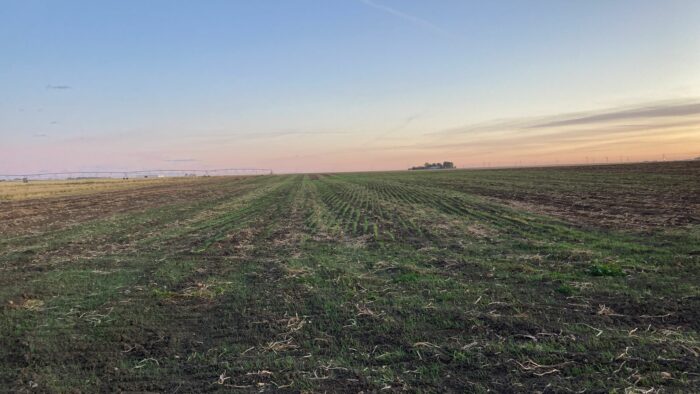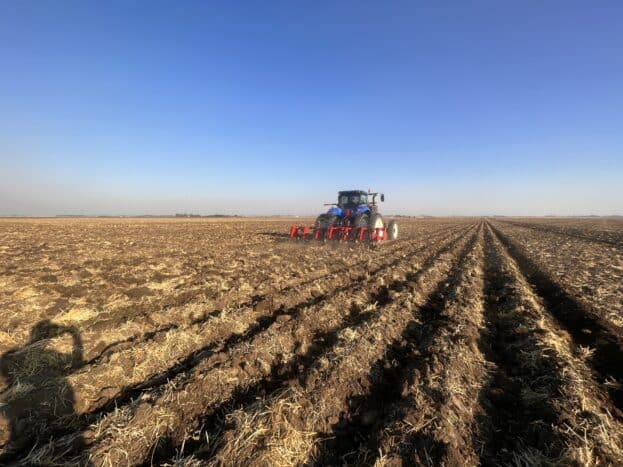845 Spud Farms has no land of its own, so working with the grain farm it grows spuds on is important when it comes to planning for potato production.
Bezco Farming Inc. in Coaldale, Alta. had been a zero till farm for decades. The grain farm worked to build its soil organic matter through zero till and leaving the crop stubble in the fields to stop the soil from blowing away.
“We’ve been three years now potatoes, going into our fourth year — (soil erosion) was probably one of the biggest challenges because we are zero till otherwise,” Greg Walter, agronomist for Bezco Farming, says in a phone interview.
Bezco Farming Inc. is a 5,000-acre grain farm owned by the Bezooyen family. They farm canola, wheat, barley, winter wheat and alfalfa. In 2019 they entered a 50/50 partnership with Michiel Buijsse and founded 845 Spud Farms together. 845 Spud Farms plants potatoes on Bezco Farming Inc. fields.

In the decades leading up to this partnership, Bezco Farming had worked hard to become a zero till irrigation farm. Adding a potato farm, which requires deep tillage, meant both Bezco Farming and 845 Spud Farms had to make some changes to save their soil and still be able to plant the crops they wanted. For them, regenerative agriculture meant working together.
“Whenever (Bezco Farming team is) done combining the field, we clean off the bales, we usually start working it right away,” Buijsse says in a phone interview.
In the fall before a potato crop is planted, the 845 Spud Farms team fall beds the fields. They’ll follow the combines, disk the fields, spread a cover crop, and then irrigate it so the crop gets established in time for winter.
“If it’s early in the season, we do work the land and we just try to seed it the way it is. And otherwise, we literally go right behind the harvesters and just seed it as a cover crop,” Buijsse explains.
Bezco Farming recently purchased a New Holland P2082 disc drill which allows them to seed cover and winter crops right behind the potato harvesters. This helps the cover crops get established faster and protect the soil over the winter before the land enters back into cereal crop production and zero till for a few years.
“This drill allows us to basically go seed right into the potatoes are off so that’s really helped a lot. Before we were doing that, we did have some trouble and soil erosion,” Walter says.

In the spring the zero till land does create challenges for potato farming as the fields stay wet longer than other spud farms in the area.
“With the organic matter it stays wet a little bit longer. It’s more like a sponge, and it stays a little bit longer. So, we’re never the first one in the field,” Buijsse explains.
While they may not be the first out planting, Buijsse has found that the organic matter in the soil provides for a nice structure in the potato hills. Cover cropping has helped them be able to plant earlier in the spring though and save their soil from blowing away which makes both 845 Spud Farms and Bezco Farming happy.
Header photo — A barley cover crop that was established after fall bedding work was done on 845 Spud Farms. Photo: Michiel Buijsse
Sponsored by: 
Related Articles
Moving Regen Ag from the Pasture to the Potato Field
The Regenerative Ag Debate for Growing Potatoes, is it Possible?









